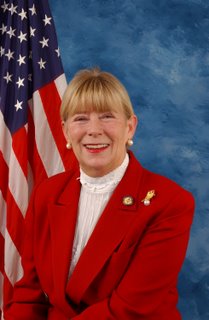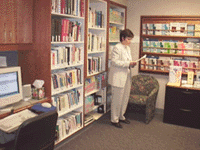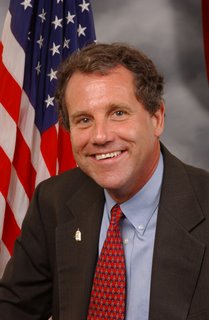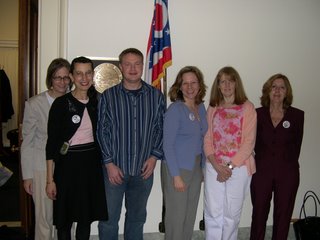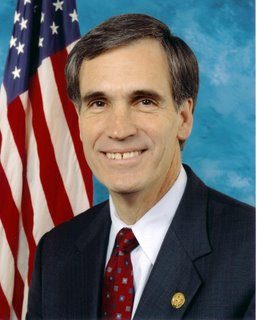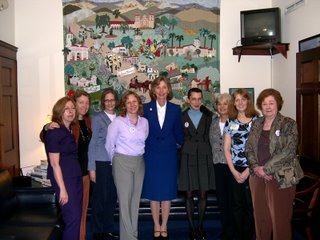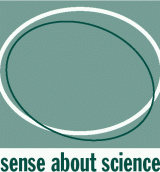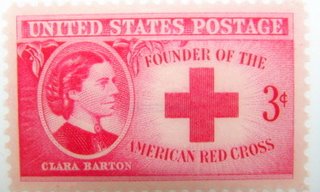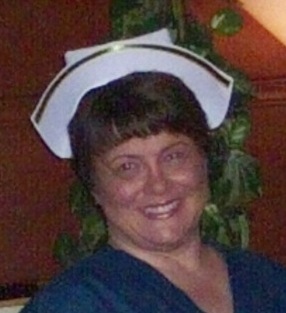
(Pictured: Kim McAllister)
Kim McAllister, RN, ADN, a nurse from the San Francisco Bay Area sent us this post in honor of National Nurses Week. Kim blogs at
emergiblog.com and welcomes all newcomers.
Every day, all over this country, in hospitals, clinics and community settings nurses work every day as caregiver/advocates for patients. Some of us are at the hospital bedside, some of us advocate as nursing professors or toil behind the scenes as doing nursing research. Some of us work with patients in their homes and in clinics/community settings where we act as vital links to a health care system that isn't easily accessible to those without means.
We have various educational backgrounds, from associate degrees through nursing doctorates. Some of us received our nursing education in our local community and some of us were educated in a different country, coming to America for the opportunity it offers.
No matter where we work or how we function or what degree we possess, we are united in one goal: contributing to the health of the citizens of the United States of America.
Nurses are not only vital to the health of this country, they are indispensible.
And there are not enough of us.
We need a visible, recognizable, vocal advocate for the nursing profession, because when you advocate for nursing you are advocating for the health of the citizens of this country.
We need the Office of the National Nurse.
We need someone at the national level who will help promote, through public education and media exposure, the necessity for nurses in general and particularly nursing educators who will guide future nurses into their roles.
Yes, we have national nursing organizations and state nursing associations that are as varied as the nurses they represent. Some are quite active, even radical in their political activities. But they are just a blip on the media screen . Some make their mark through strikes, loud protests and picketing elected officials. They work to help nurses get better pay and benefits, but often the public only sees the behavior and not the motivation (better nursing care, better working conditions so nurses stay in the profession) behind it. I certainly have benefitted from their willingness to speak out. But.....
We need a national spokesperson, someone the public sees as "the voice of the nursing profession". Someone who is not associated with an organization or union, but someone who UNITES the voices of the various nursing organizations into one message:
We need nurses, we need them now and here is why you should consider nursing as your professional choice.
But the best part, and this is when I came on board, will be the formation of National Nurse Teams. Groups of volunteer nurses who will do community outreach and education in schools, senior centers and surprisingly, libraries. Groups of nurses representing diversity in their educational levels and in racial/ethnic minority groups (that IS the definition of the nursing profession, after all).
What a wonderful way to serve your country in a civilian capacity.
Oh, I've heard the objections.
"Oh but we already have a Surgeon General! Why do we need a National Nurse?"
As they do in everyday life, nurses and doctors will work together; the National Nurse will work in consultation with the Surgeon General in setting priorities for the nation's health care.
One of those priorities will be increasing the number of nursing faculty to increase the number of nurses that are desperately needed.
Only the National Nurse will be a visible, recognizable representative. Are you able to name the Surgeon General? I had to go look him up on Google.
"Oh, it's just an excuse for a national nurses union."
No. It's not. The National Nurse Teams are voluntary.
"We don't need any more expenditures in government!"
Ever heard of "Porkbusters"? Look them up and see just what your state wants money for. It isn't health care, trust me.
If you haven't read the bill, HR 4903, click on the link on the sidebar and check it out. Never read a bill before? Don't worry, you won't have to run and rewatch Schoolhouse Rock's "I'm a Bill" to understand it. No one is less politically savvy than I am and I was impressed. It's basic, it's elegant in its simplicity. And it is needed.
As soon as my article is finished, I'll be calling my local Representative, Ms. Barbara Lee and asking her for her support. Look up your representative. Do the same.
What if someday you called for a nurse and nobody came?
We need the Office of the National Nurse.
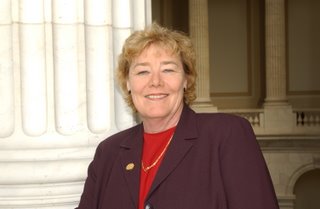 Pictured: Representative Zoe Lofgren (CA)
Pictured: Representative Zoe Lofgren (CA)